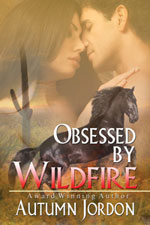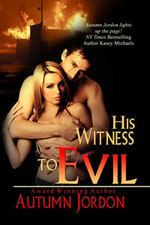REALLY BAD opening line: Sara Amos gripped the steering wheel tighter. She was nervous because she was starting a new job and had already pissed her new boss off.
Pretty bad opening, uh? What’s missing?
It's bare bones. There's not a sense used, nothing to grab the reader and bring the story to life.
We learn about our world through our five senses. Knowing this, it would make sense that we learn about our character’s world through their senses. Writing vivid, sensory details will engage your readers. Great writing integrates all the senses in a way that they blend and harmonious with the rest of the prose. So how do you that?
First we need to reach into ourselves and embrace our senses. Grab a pen and pad. Go sit outside on this autumn day and immediately close your eyes. The sense of sight is the easiest of all to write, using only it is lazy.
Now without opening your eyes concrete on your four other senses, one at a time. Again, without opening you eyes, scribble on you pad. Reach deep. Don’t just write the first element you recognize.
What do you hear? If you hear a sound you don’t recognize, what does it remind you of? Is it sharp, clanky or soft sound? Think out of the box.
What do you feel/touch? Not just through your fingers tips. Does the ground under feet feel spongy because of the downpour last night? Is there a bite to the breezy or does the sunshine kiss your cheek.
Smack your lips together. Stick your tongue out. What do you taste? Be Rachael Ray of sensory words.
What do you smell? Smell is the most powerful of senses to bring back memories. You don’t want to forget it. If you have a memory write it down.
Finally, open your eyes. Now what do you see? Really look at the world surrounding you. Look for the details. Details that will make your reader say, “Hmmm..I never looked at the old house down the street that way. It reminds me of a tired old boot, sort of sagging. It’s chimney leaning like the tongue away from the boot.”
Okay, we’ve got our senses sharp. Now let’s put them to the page.
Take the bare bone paragraph above and make it your own. Please post it in your comments and let’s learn from each other. Come on! One little paragraph. There is no right or wrong.
I will guarantee once you try this exercise, you will grab your current wip and start editing.
Let’s have fun.
Here's my attempt this morning:
Wet leather. She was going to smell like a freakin’ cow if she didn’t get a grip on her nerves. Sara Amos shook a mint from a tin, trapped the pill between her gloss covered lips and dropped the package into the cup holder with a ping. Six months she knocked— No, banged on the ivory doors of the Chase law offices before she had been granted entrance. Now that she was in, she planned on staying a long time. She pushed the button on the dash. Her relaxation CD whirled in the player for a second before fuzzy strands fill the car. Eyeing the passenger mirror held on by duck tape, Sara stretched her fingers one-at-a-time in her skin-tight suede gloves and curled them into the grooves of the steering wheel. Her new boss would just have to get over the fact she dumped him years ago.
***
Join me Friday October 15 as I welcome Paranormal/erotica author Kathy Kulig.
Wednesday, October 13, 2010
BORING
Labels:
2009 Golden Heart Finalist,
Autumn Jordon,
Award winning romantic suspense,
romance writer,
writing exercise
 Welcome to my blog. Each week I share my life, my work, and writing tips. At times, I might have wonderful guests stop by. If you like what you read, please comment and/or become a follower.
Want to learn more about my works or me? Hop over to my website. www.autumnjordon.com While you're there, join my newsletter.
Welcome to my blog. Each week I share my life, my work, and writing tips. At times, I might have wonderful guests stop by. If you like what you read, please comment and/or become a follower.
Want to learn more about my works or me? Hop over to my website. www.autumnjordon.com While you're there, join my newsletter.
Subscribe to:
Post Comments (Atom)











I had to read the boring line. Yep, it's boring, all right. Your second version was spot-on, clever, witty and it would make Les Edgerton proud! Your advice about the five senses is something I really need to work on. I usually include sight and sound, but not smell, taste, or feel as much.
ReplyDeleteNow, I'll go out and sit on my screened-in porch, close my eyes, and listen.
Great post, Autumn! Celia
Wow, autumn you did agreat job with the opening line. I always refer to Donald Maass's 10 points needed for a good hook. It was emphasized in Mary Buckham's classes: Opening hook should contain one or more of following: Action or danger; overpowering emotion; a surprising situation; evocative description; a unique character; warning; shocking dialogue; the totally unexpected; raising a direct question.
ReplyDeleteGreat post! I so often get caught up in the plot, I forget that my characters do more than just see, speak, and feel emotions.
ReplyDeleteThanks, Celia. I'm wondering how you did out there on the porch. Every so often I do this exercise, just to remind myself to layer in the senses.
ReplyDeleteThanks for stopping by today.
Oh, Mona. Openings are hard. Writing is hard. I love the advice you posted here. I love Mary's cclasses. I have yet to hear DOnald, but I so want to.
ReplyDeleteLayering, Lilly. I can't tell you how many times I go over a page tweaking. We need a check off list, don't you think?
ReplyDelete